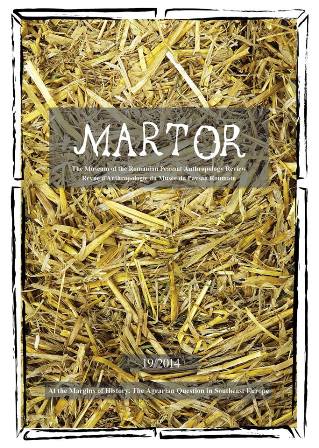A Missing Link: The Agrarian Question in Southeast Europe
A Missing Link: The Agrarian Question in Southeast Europe
Author(s): Stelu Şerban, Ştefan DorondelSubject(s): Anthropology
Published by: Muzeul Ţăranului Român, Editura Martor
Keywords: Southeast European peasantry; peasant studies; collectivization; expropriation; forced industrialization; post-socialism; privatization;
Summary/Abstract: The argument of this collection relies on the social history of South-Eastern Europe itself, widely neglected in peasant studies. The attempts of the communist regimes to modernize the countries in this area, mainly through collectivization, expropriation and forced industrialization, have not lead to disappearance of the peasantry from any of these countries. Compared to West-European countries (which comprise around 5 per cent) peasantry is much alive in countries from South-Eastern Europe, accounting for about 55 per cent of the total employed population in Albania (Ministry of Agriculture 2011), to 29 per cent in Romania and 21 per cent in Bulgaria.3 Not only the historic importance of the peasantry and its contemporary economic and social relevance make the agrarian question framework still relevant for this part of the world, but also its political stance. The post-socialist de-collectivization and the land privatization, the deindustrialization of those countries and the return of the unemployed or pensioners back to the countryside may give us new ways of looking at the agrarian question. Therefore, the papers gathered in this issue will first explore the historical aspects of the agrarian question in Southeast-European countries.
Journal: Martor. Revue d’Anthropologie du Musée du Paysan Roumain
- Issue Year: 2014
- Issue No: 19
- Page Range: 7-30
- Page Count: 24

